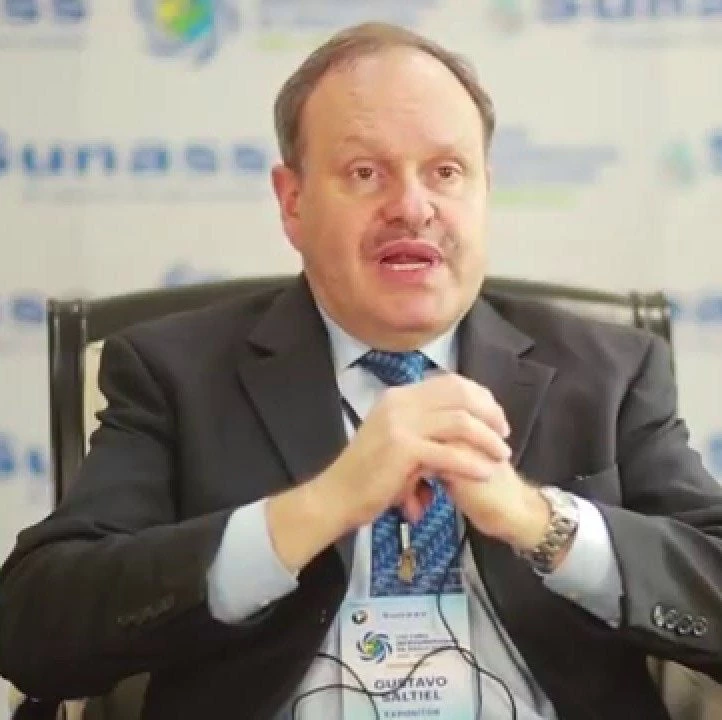
Under the appearance of sufficient water at the continental average, however, lies a highly uneven resource distribution, meaning that many countries and transboundary river and lake basins face increasing levels of water stress due to rapidly increasing populations and various accompaniments of economic growth. Climate change exacerbates water insecurity, and in turn, vulnerability of the poorest populations.
Next week, the African Ministers’ Council on Water will host the 5th Africa Water Week in Dakar – the continent’s pre-eminent gathering of water experts, policymakers and civil society – under the theme, “Placing Water at the Heart of the Post 2015 Development Agenda.”
I can think of no other venue more suitable for discussing sustainable management and development of Africa’s international waters openly and fruitfully, and for catalyzing new opportunities and partnerships for greater impact.
At the home ground of the OMVS (Organisation pour la mise en valeur du valeur du fleuve Sénégal or Senegal River Basin Development Authority), which has successfully applied benefit sharing principles and equitable institutional and financial arrangements to harness the benefits of basin-wide cooperation, there will be much for CIWA and our implementation partners to learn and cross pollinate in our work across Africa.
Africa’s 63 transboundary river basins cover more than 60 percent of the continent’s surface area and house more than half a billion people. As water issues and the sectors which require water such as agriculture, energy and transportation take center stage on the development agenda, there is growing recognition that sustainable management of shared water resources must become an integral part of the solutions needed to end poverty and boost shared prosperity on the continent.
Today, Africa stands at the cusp of an unprecedented opportunity. Sub-Saharan Africa’s growth has remained strong at 4.7 percent in the past decade. Rates of return on foreign investment are higher in Africa than in any other developing region, and rising global demand for Africa’s natural resource based commodities illustrate the tremendous opportunity for transformation and sustained growth that Africa faces.
My colleagues at CIWA and I believe that despite the small size of our program, we can punch above our weight, and strengthen cooperative management and development of international waters in Sub-Saharan Africa to aid sustainable, climate resilient growth. We believe that we can achieve this by supporting riparian governments in strengthening the 3 Is - transboundary water Institutions, the quality and accessibility of Information systems, and improved preparation of regional Investments.
We have an ambitious agenda in Dakar.
We intend to build on the achievements of our work in the Nile and Zambezi Basins. We want to showcase more recent success stories such as the Regional Rusumo Falls Hydroelectric Project in Burundi that was approved by the World Bank’s Board in August 2013 and will help bring cheap, renewable energy to millions of people in Burundi, Rwanda and Tanzania.
Rusumo Falls is a successful case where analytical work delineating the benefits of cooperation has led to a major investment in transboundary water resource development – it is a model for CIWA’s work.
Ultimately, CIWA’s work is about people.
When the Rusumo project is commissioned, it will increase electricity supply in Burundi where only 4% of the population has access to electricity. Corresponding numbers for Rwanda and Tanzania are 13 and 15% respectively. All three countries will benefit people through jobs created by construction and installation activity associated with the power plant.
Through our participation in the fifth Africa Water Week, we hope to lay the ground work expanding our program in West Africa and the Sahel towards achieving our ambitious target of mobilizing US$10 billion regionally benefitting water management and development projects in the program’s 10-year lifetime.
Dakar promises to be an important milestone in our journey, one which would not have been possible without the support of CIWA development partners. CIWA was founded on the premise that “collaboration” is key to advancing the shared water resources agenda. Thanks to the support of our development partners, we have are now taking steps to advance the program to priority regions across the continent.
I am looking forward to being in Dakar soon to share our ideas and to learn from you.
Related:
Event: CIWA at the Fifth Africa Water Week
Website: CIWA
Live Chat: Challenges of Managing Shared Waters in Africa


Join the Conversation